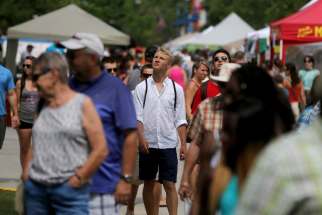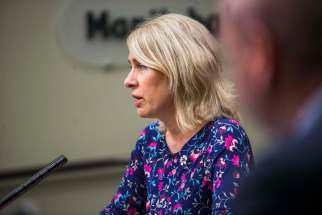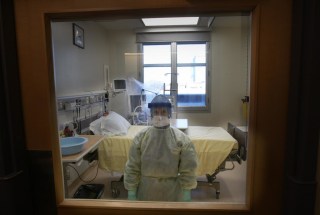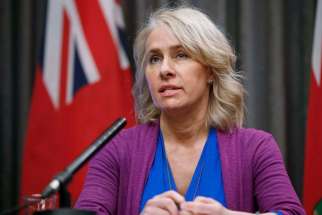Generations vexed Pandemic creates new, unsettling reality for Manitobans regardless of age
Read this article for free:
or
Already have an account? Log in here »
To continue reading, please subscribe:
Monthly Digital Subscription
$0 for the first 4 weeks*
- Enjoy unlimited reading on winnipegfreepress.com
- Read the E-Edition, our digital replica newspaper
- Access News Break, our award-winning app
- Play interactive puzzles
*No charge for 4 weeks then price increases to the regular rate of $19.00 plus GST every four weeks. Offer available to new and qualified returning subscribers only. Cancel any time.
Monthly Digital Subscription
$4.75/week*
- Enjoy unlimited reading on winnipegfreepress.com
- Read the E-Edition, our digital replica newspaper
- Access News Break, our award-winning app
- Play interactive puzzles
*Billed as $19 plus GST every four weeks. Cancel any time.
To continue reading, please subscribe:
Add Free Press access to your Brandon Sun subscription for only an additional
$1 for the first 4 weeks*
*Your next subscription payment will increase by $1.00 and you will be charged $16.99 plus GST for four weeks. After four weeks, your payment will increase to $23.99 plus GST every four weeks.
Read unlimited articles for free today:
or
Already have an account? Log in here »
Hey there, time traveller!
This article was published 13/04/2020 (2066 days ago), so information in it may no longer be current.
In 2019, the term “OK, boomer,” became a popular phrase.
It was a social-media retort to the baby-boom generation from millennials, many of whom had grown weary of judgmental attitudes from older generations. That “OK, boomer” turned into a meme didn’t help foster greater understanding between the generations, which in some cases, were parents (boomers) and their children (millennials).
Well, what a difference a pandemic can make.
In the midst of a rising number of COVID-19 cases in Manitoba and around the world, and the resulting social-distancing and self-isolation practices undertaken to prevent the virus’s spread, all generations appear to have set aside their differences and teamed up for a common goal — to keep everyone as healthy as possible.
The Free Press contacted five Manitobans of various generations and asked them to provide their thoughts about the pandemic, how they’re coping with social distancing and their thoughts about the future.
● ● ●
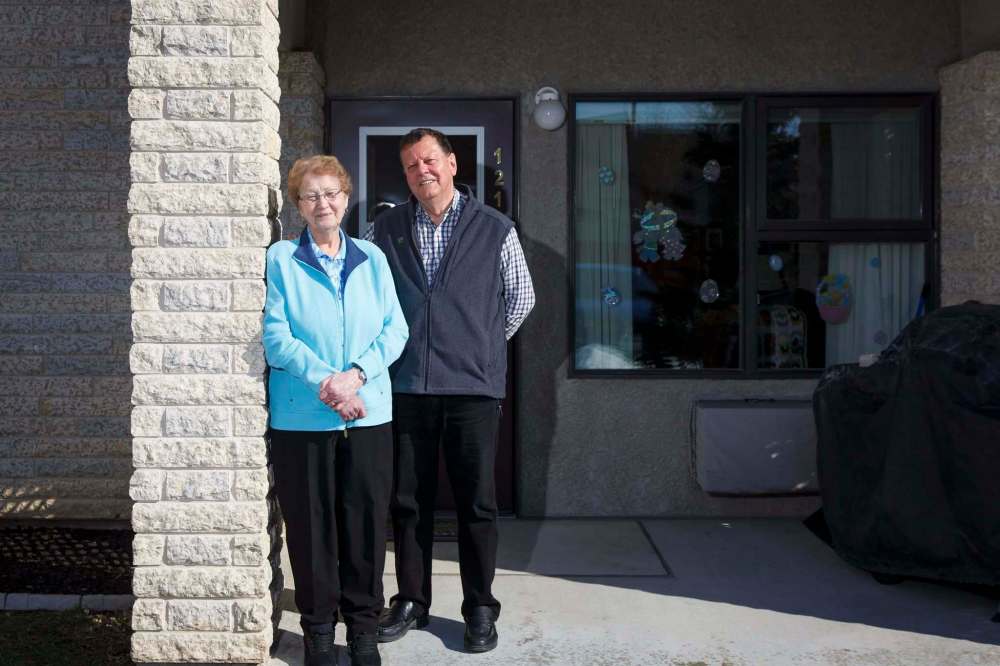
Rosemarie Yeo, 78, lives with Dale, her husband of 58 years, at the Stonewall and District Lions Manor, a retirement home that has been under lockdown for more than two weeks due to COVID-19. Yeo is a retired child-care worker who eventually was the director of the Roblin Nursery School, all done while raising five children.
“I was born in 1941 in a very small village in southern Saskatchewan.
“My dad (born in 1908) talked about the “great flu” or Spanish Flu of 1918-19. He told us that he was the only one in a large family who was not sick at the time. He was 11 years old. He had to do chores, look after livestock, carry water and go to the neighbours, miles away and help them.
“Food was scarce and living conditions certainly not as they are now. If I have it right, two sisters passed away, one in 1918, and one in 1920. I do not know if this was because of the flu. My husband recalls that his dad’s family who lived in Saskatchewan also, fostered a little girl aged 2 or 3, whose mother had died from the flu. The father of this child kept the other children but couldn’t adequately look after the little girl. You can imagine the lifelong impact this would have been for both families when the father was able to take the child back.
“My dad (born in 1908) talked about the “great flu” or Spanish Flu of 1918-19. He told us that he was the only one in a large family who was not sick at the time.” – Rosemarie Yeo
“I also remember very clearly the concern over the polio epidemic. My family had moved to a farm near Dauphin in 1950 and I needed to have my tonsils removed. The doctors were very reluctant to do that because of the polio epidemic. They did the surgery. I was fine. The dentist that our family had for years had a bad limp because of polio. An “iron lung” was displayed for years in the hallway of the Dauphin General Hospital. I do also distinctly remember when nurses came to our rural school and vaccinated all students with the anti-polio vaccine. I was so amazed and impressed with this.
“As an adult and raising my own children, we were aware and on guard because of SARS and H1N1 for example, but we were never directly affected by them.
“If I had to experience a pandemic, I am thankful that it is now, not 1919. Our (houses) are warmer and most have running water. We have government help, social media, television, wonderful health-care workers, pharmacists, police officers, grocery-store workers, to name a few, to help us out. Thanks to all of you. We will get through this!”
● ● ●
Andrew Bachmann, 58, works for a payments processing company in Winnipeg.
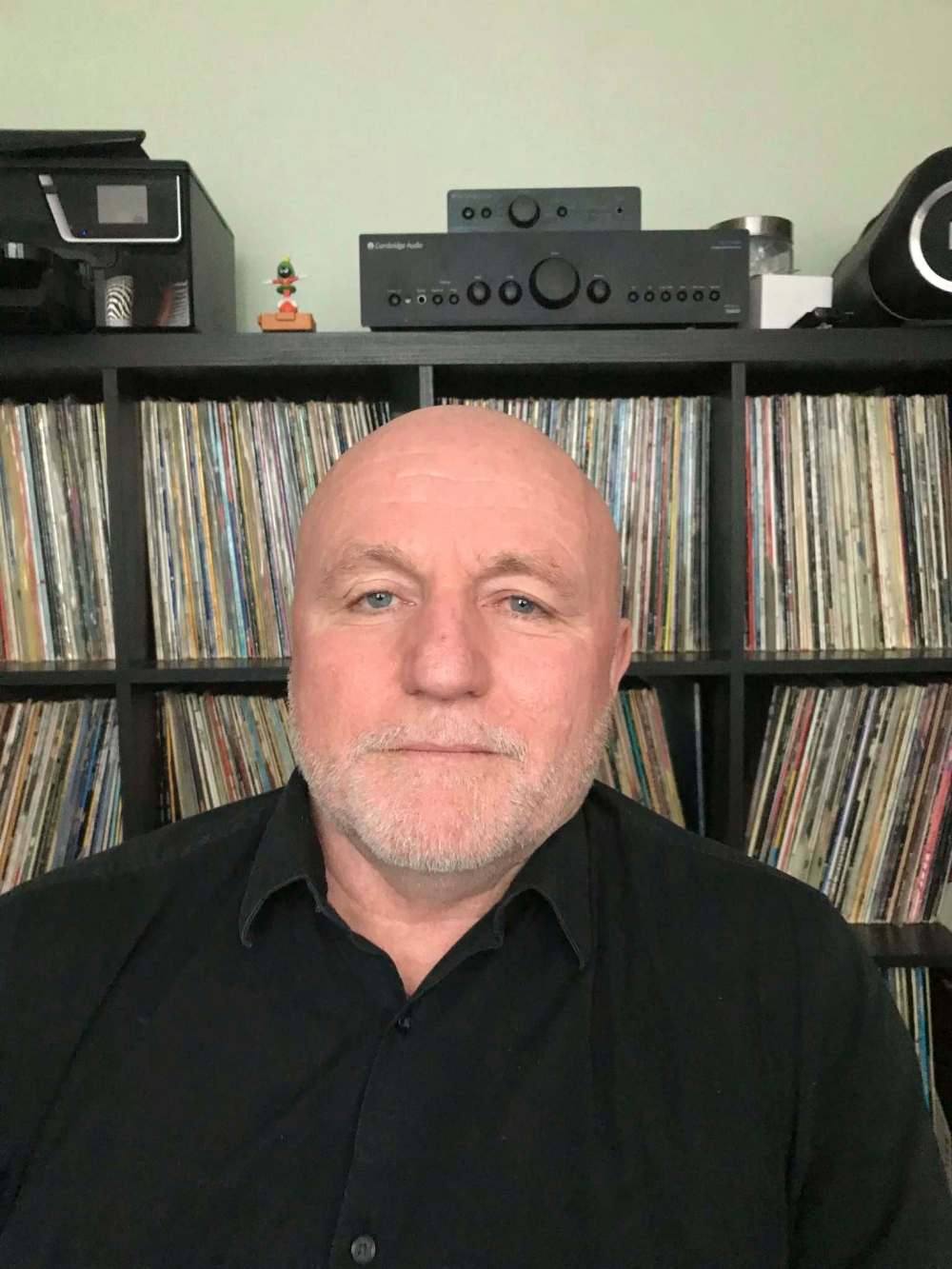
“Back in December, I had taken the initial reports of a new virus coming out of Wuhan, China, with a grain of salt. We’d been down this road with SARS, right?
“With all that has transpired in a relatively short period of time, I am firmly on the pro-isolation side. If God is willing and the creek don’t rise… I will see my 59th birthday in October. And with that, there is the stark realization that I am creeping ever so slightly into “that” demographic of people who may be harder hit by COVID-19.
“I haven’t had a feeling of invincibility for about 30 years or more but I’ve always considered myself healthy, fit, even durable. With the COVID-19 outbreak I find, for the first time in my life, I’m truly feeling somewhat vulnerable. I’m carrying some extra weight; my cardiovascular isn’t near what it was. Add to the mix that my wife, afflicted with colitis, is immunocompromised and you get a healthy level of respect out of our household. I’m not saying getting this would necessarily be a death sentence in my case or hers but it is a battle we’d rather forgo.
“Almost as dangerous as the outbreak itself are those who downplay this virus. There are people who just don’t get it. And taking it to the extreme, the conspiracy theorists. I know some of them, I see some of them on Facebook and ultimately I choose not to engage. Life is too precious to waste time trying to reason with the unreasonable. Yet somehow their indifference or lack of respect is a cause for concern for me.
“All said, I respect the potential danger of the virus but there is no sense of panic in our household.”
● ● ●
Maggie Svaling, 53, is an insurance claims examiner.

“I’ve been staying home for three weeks now. It feels surreal. The only time I leave the house is once a week for groceries and to take my dogs for a walk. If you told me a month ago that this would be my life in April, I don’t think I would have believed it.
“I knew we would be affected by the virus but I never imagined it would be to this extent. I’m coping. I’m one of the lucky ones in that I can work from home, I’m still getting my paycheque, and other than being stuck inside, life hasn’t changed that much. I’m grateful for my job, my health, family and friends, and my home. I know not everyone is in my position and a lot of people are suffering from job loss and uncertainty about their future.
“I feel safe, but I still worry. I’ve never been anxious to go grocery shopping. I know I am doing all I can to keep myself healthy. What I can’t do is control the actions of others. I fear that I will encounter people while grocery shopping who are not social distancing and who may be sick.
“The stress can take a toll on your mental health. I try to keep active by going for walks or running on my treadmill. A chat with a friend or family member online is the new way to keep in touch and relieve stress. I also find meditation works well on my anxious mind. Sometimes I just tell myself to breathe and remember that this too shall pass.
“I truly believe that there will be a silver lining at the end of this pandemic. I hope that as a society we will change, we won’t take things for granted, we will realize that life is short and that it can change in an instant. I hope that being “so busy” will no longer be a status symbol and that society will slow down and be more mindful. I also hope we look at the way we live and where these viruses are coming from. I think a lot can change in the world if we were to change our habits.”
● ● ●
George Pearce, 34, is a math and science teacher, at Gordon Bell High School. These days, he teaches from home, using social media and other programs to connect with students.
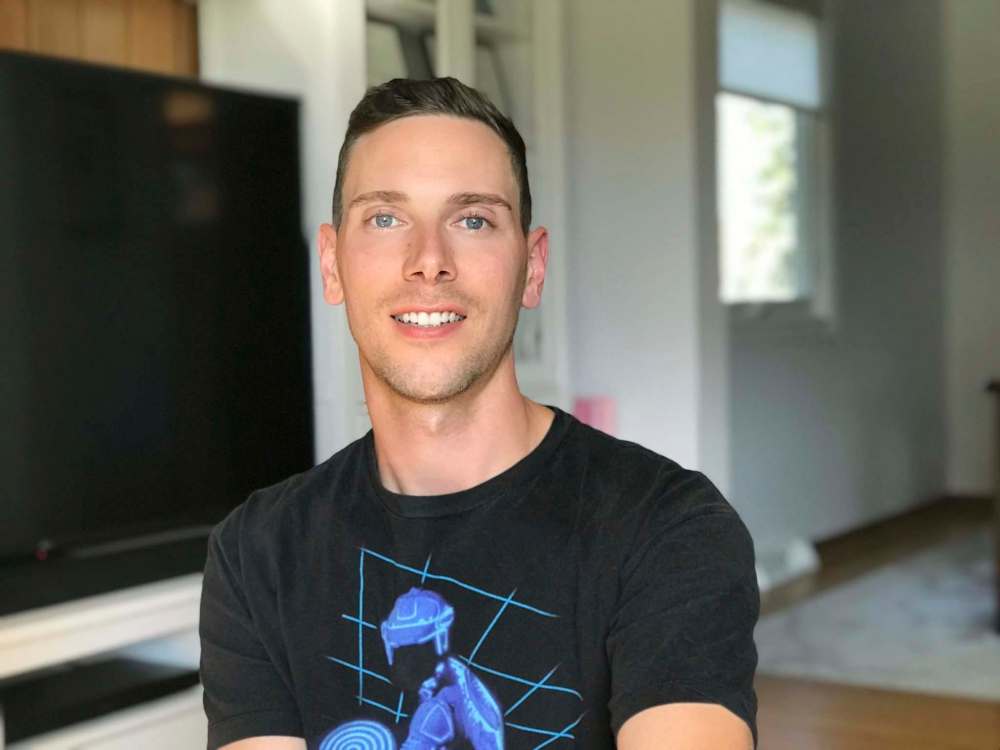
“Sitting at my kitchen table eating dinner with my young family, I asked my wife, “do you think we will know people who die from this virus?” Her quick response of “no” was both comforting and optimistic. While doing our part and staying at home I try to frame our self-isolation as being “safe at home” and “protecting those at risk” rather than “trapped,” but I must admit it does not always feel that way.
“I am not scared; I am however worried about our parents in their 70s who are now grandparents to our young daughter. I am worried about my wife, pregnant with our son due in mid-August. I view my family’s safety as paramount; therefore, we are following the necessary but difficult recommendations of staying home.
“As a teacher, I am used to having many conversations and social interactions every day. With the announcement of school being suspended, I am left with attempting to connect meaningfully through a screen. Social media and text-based messaging are only a dip in the shallow end of the human connection pool, but I am attempting to get everyone in the pool, regardless.
“Taking time to video chat with family, friends, colleagues and students is important and it is vastly more meaningful than a text or email.
“It might feel a bit cliché or anti-climactic, but for the average person like me, doing nothing, just sitting and waiting is what will be the difference in flattening the curve. Luckily, my daughter loves watching people walk their dogs past our house, and there sure are lots people walking their dogs these days.”
● ● ●
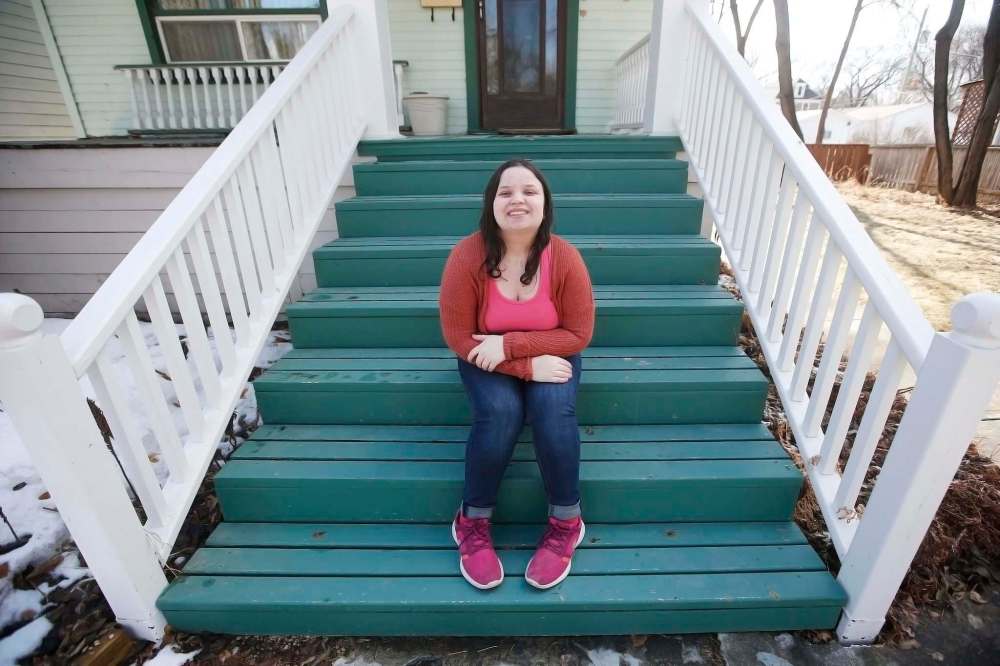
Shira Hoult, 17, is a Grade 12 student.
“I find that the different environment of learning at home makes it harder to focus and do my work. My school (Gray Academy) has handled it beautifully and had our online portal up and ready to go in two days. Still, I’m sad that I will never sit in my teachers’ classrooms as a student again.
“It is incredibly difficult being away from my friends, especially those who go to different schools, now that the youth-group programs we had together have been cancelled. It is particularly hard since I’m in Grade 12 and this is my last chance to partake in these programs. I was also laid off from my job as a dishwasher at a cafe when it closed.
“I’m not particularly worried (about the future) for myself since I am relatively healthy and in a good family situation. I’m worried for my friends who are either immunocompromised or living in dangerous situations.
“The biggest concerns I have for myself are all school-related. My graduation is postponed until further notice, and it is unclear when that will be. I am uncertain how university classes will work in the coming years.
“I’m just glad that I’m with my family, and that we’re all healthy.”
alan.small@freepress.mb.ca
Twitter:@AlanDSmall

Alan Small has been a journalist at the Free Press for more than 22 years in a variety of roles, the latest being a reporter in the Arts and Life section.
Our newsroom depends on a growing audience of readers to power our journalism. If you are not a paid reader, please consider becoming a subscriber.
Our newsroom depends on its audience of readers to power our journalism. Thank you for your support.


